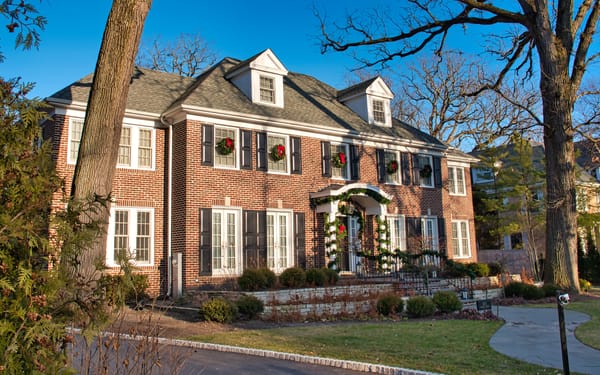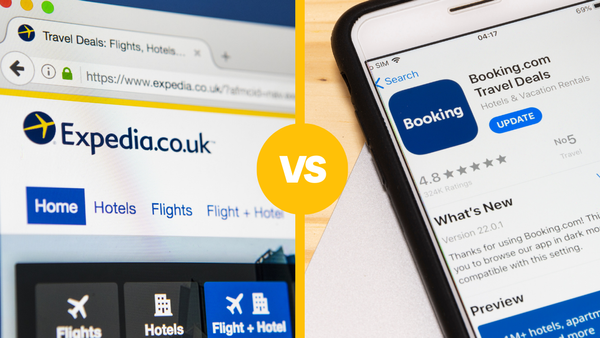Flipping vs Renting Properties: Which Is the Better Investment?

Nowadays, there are many different routes that you can take when you purchase a property. Long gone are the days when your only option is to buy and hold properties. Sure, you can still do that, but increasingly more real estate investors are buying properties with the purpose of renting them out or with the intention to flip houses and resell them.
Not only do real estate investments offer various options, but, compared to other investment opportunities like stocks, the returns linked with owning rental property or flipping houses can be easier to predict. Depending on which location you have in mind, there are also potential tax incentives available.
To help you identify the best investment strategy for your lifestyle, here is an overview of flipping houses vs renting properties. If you do decide on building wealth by supplementing it with rental income, make sure to read to the end for practical tips on renting houses and other properties.
What is a Real Estate Investment?
A real estate investment refers to spending money on a property with the hopes of making a profit or ongoing income in the form of rent.
Real estate investing could include renovating a fixer-upper for resale (flipping houses), holding onto the real estate for growth in value over time, or managing the property for rental investment income. It could also involve the combination of those strategies, such as the BRRRR method.
What Is a Rental Property?
A rental property is a real estate that is purchased by a real estate investor but lived in by other tenants in exchange for payment, based on a rental agreement. This may apply to residential or commercial real estate and could be rented out for various purposes (for example, as vacation rentals or business offices) and for different lengths of time.
A rental property is seen as a type of passive income. This means that every month you can earn an income, even if you find yourself halfway across the globe, by renting out your properties to tenants or guests.
Not all rental property is passive in the sense that no work needs to be put in, because rental properties will still have regular tasks that need to be handled. With the help of technology like vacation rental software, however, many of these tasks can be automated, so that rental property owners can focus on other activities while their investment property draws in passive income.
How Does Flipping Property Work?
When you flip a property, the goal is to purchase at a low price and boost the value of the property by fixing and improving it. This way you can sell it for more than the original purchasing price.
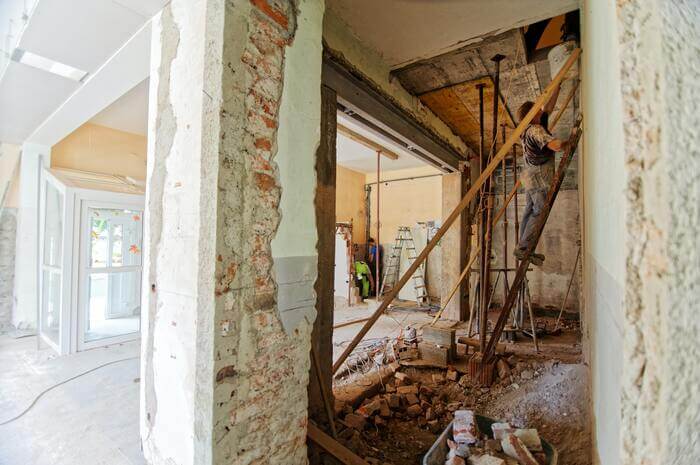
You can either buy a property for less than market value because the owners experienced financial difficulties or you can buy a property that needs a lot of tenderness, love, and care (aka a fixer-upper).
With the first approach, you will be spending a lot of time finding properties where the owners can no longer repay the mortgage and are close to foreclosure (aka distressed properties). One of the benefits of this strategy is that these types of properties might not call for as much extra capital for repairs as true fixer-uppers will need.
That being said, it can be extremely rewarding to renovate a fixer-upper, while time-consuming. If you are thinking about flipping a property, you are looking at about six months for the process and if it is run as a side hustle, nearly all your free time will be devoted to this project.
Flipping vs Renting Investment Property: What’s the Difference?
Unlike renting houses, flipping properties is seen as an active income. This is one of the key differences between the two property investments. Active income means that you get money in exchange for completing work. On the other hand, with passive income, you can continue to generate cash without actively participating.
Though generally accepted as such, flipping properties is technically not classified as real estate investing as you have to put in considerable work before you can reap the potential rewards. Sure, you might not be renovating it yourself, but you will still be spending a lot of time on other key tasks like obtaining the necessary permits and possibly supervising the project. In fact, it could take up just as much time as a day job.
This means that flipping houses are also seen as a short-term investment while a rental business that focuses on renting out properties is seen as a long-term investment.
Advantages and Disadvantages of Managing Rental Properties
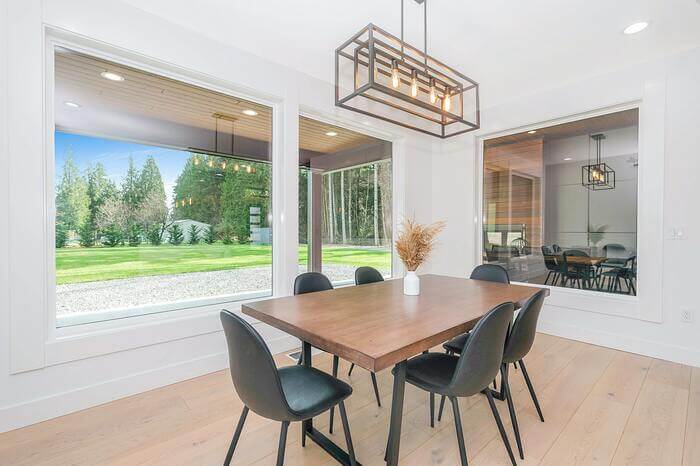
Managing rental properties can be a lucrative business that offers a number of benefits. Here are some of the main pros and cons to consider when making an investment decision:
Pro: Higher return on investment
As you will be able to generate a monthly income and profit when you decide to sell the property, you can expect a higher return on investment. Plus, as you are not pressed for time to sell the property (like is the case when you flip properties), you can sell when the real estate market is in your favor.
Pro: Continuous passive income
As mentioned before, one of the key differences is that renting properties is seen as a passive income. This is also one of its biggest benefits. When you own a rental property, you can continue with your day job and earn a steady income on the side.
Pro: Property value increases over time
More often than not, the value of the property tends to increase over time. Then, if you strike it lucky and buy it during a buyer’s market only to sell it when it is a seller’s market, you are bound to make even more profit.
Pro: Tax benefits
In the US, the income that you generate via rental properties is taxed at a lower rate. What’s more, you will also be able to deduct certain property-related expenses, such as property management fees and repairs, which will help to lower your tax obligation further.
Then, once you do decide to sell your property, you will pay tax according to the long-term capital gains rate which is also lower (that is if you owned the property for at least a year). These benefits are not available to those who choose to flip a property.
Con: Risk of low occupancy
Depending on where your property is located, you could battle with low occupancy which will hurt your income. That said, even if your property is located in a popular area, there will likely be times that your property is unoccupied. What makes this situation so challenging is that you will still need to pay the mortgage interest and other recurring monthly expenses, like insurance, even though your income for that month will be lower, or possibly zero.
On the topic of occupancy, there is also the risk of renting it out to bad tenants. Finding quality tenants is not as easy as you expect. Not only can troublesome tenants cause you more stress, but if they damage the property, you will have extra expenses that could negatively impact your bottom line.
Con: Requires more time
While renting properties is seen as a passive income that you can generate remotely, there is still some work involved that will require considerable time and effort. If you choose not to work with a property management company, you will have to set aside time for routine tasks like finding tenants, communicating with them, fixing broken appliances, or attending to after-hours property emergencies like a burst pipe.
Con: Requires ongoing insurance, maintenance, and repairs
Not only will you need to invest time to deal with maintenance and repairs, but it is also a cost that you will need to keep in mind.
Advantages and Disadvantages of Flipping Houses

House flipping can sound very romantic. Before you quit your day job to flip property, though, here are the pros and cons you need to know.
Pro: Quicker return on investment
The average time that it takes to flip a house is about six months, and that is if you have done it before. If it is the first time that you are flipping a house, you can expect the process to take a bit longer, perhaps more than a year. Either way, one of the main advantages that this approach offers is that you can get a quicker return on your investment. After you have sold the property, you will have a lump sum of capital that you can use for other investments.
In fact, not only will you receive a faster return, but as your capital is tied up for a shorter time, it is regarded as a safer strategy than stocks. Unlike the real estate market, the stock market is volatile and can change significantly within a matter of a day. However, that doesn’t mean you shouldn’t diversify your investment portfolio, as this gives you the best chance to see a return. Websites like Alpha Spread, with their tagline “fundamental investing made simple,” can help you get started in the stock game.
Pro: Less hassle
While you will need to devote a lot of time to renovating the property yourself or overseeing the contractors, it generally has less hassle than renting out properties. When you rent out a property on a short-term basis, you have the responsibility of finding guests, collecting payment, and ensuring that the property remains in tip-top shape to name only a few key day-to-day tasks.
Pro: No ongoing maintenance costs
Unlike rental properties, you will have no ongoing maintenance costs to include in your budget. After you have sold the property, you walk away with your hard-earned money. The maintenance costs will become the responsibility of the new property owner.
Con: Potentially higher overall costs
The costs to purchase and fix up can quickly add up to a pretty significant sum. Plus, you will also need to account for potential unexpected costs. Then, there is the added burden of transaction costs which can eat away at your profit margin when you buy and sell the property.
Con: Once-off variable income
When you flip properties, the only money you will make is when you sell the property. Sure, this can be a generous amount, but you will lose out on the opportunity to make continuous rental income spanning multiple years.
Con: Higher taxes
Because properties are turned around quickly, it could mean that you will have to pay more tax. In the US, short-term capital gains tax applies to a property that was sold within less than a year after it was bought. The profit that you make with the purchase will be taxed as ordinary income which means that the tax rate will also be higher.
Flipping vs Renting: Which Is Best for Real Estate Investing?
When it comes to deciding between flipping vs renting properties, there is no right investment approach. Ultimately, your goals will decide which route will make more sense. For example, if you want real estate to be an integral part of your overall investment portfolio, it will make more sense for you to hang onto your property for longer by renting it out, that is if you are ready for the ongoing management.
How Do I Start Renting Out Properties?
Once you’ve thought through the pros and cons of each type of property investment, you may find that you are keen on renting out properties. Here are the key steps to help you get started:
1. Decide whether you want to go the long-term or short-term rental route
If you buy a property with the goal of renting it out, you have two approaches. You can either rent it out on a short-term or long-term basis. Just like with flipping vs renting property, both these approaches have their own set of pros and cons.
Generally, short-term rental properties require more work, but are more profitable, on average. However, for this strategy to be successful, it needs to be well-managed and located in a popular area with high demand.
2. Get the necessary licenses and research local regulations
If short-term renting is more attractive to you, you will also need to research the local short-term regulations first. Depending on where your property is located, you might be limited to renting out your property for a number of days per year. You might also potentially be required to live on-site.
After you have carefully studied the local laws, you also need to double-check if you need to get any licenses. Once again, depending on your location, you might need to apply for a general business license and/or a short-term rental license.
3. Buy and furnish a property with great rental potential
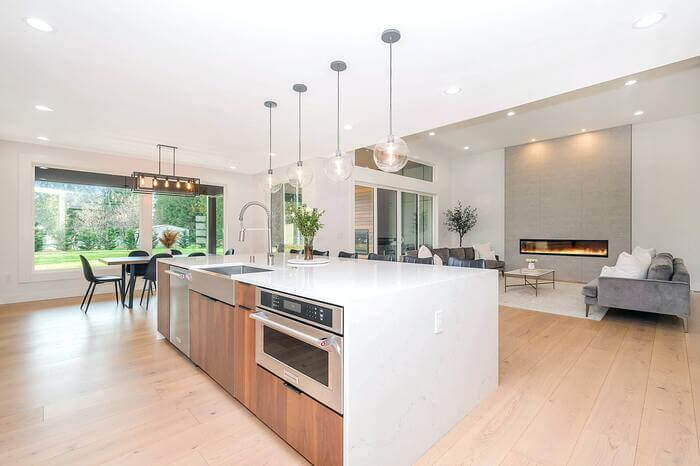
When you flip a property, your focus is limited to improving the building itself. On the other hand, when you rent out a property, you will also need to pay attention to aspects like furnishings, amenities, and access.
Location will also play a much bigger role. The best cities for short-term rental properties are safe and offer a number of popular amenities such as beaches, restaurants, and national parks. While you will want to buy a property in a popular city, you also need to consider the competition. If it is too fierce, you will have a harder time ensuring a high occupancy rate, one of the main cons of property rentals.
To furnish your property, you can expect to pay anything from $25,000 to $100,000. Not only will you need to cover the basics, but it is also recommended that you include a few extras on your stocking supplies checklist to improve the overall guest experience.
Then, to protect your investment, you will also need to insure your property. While vacation rental platforms offer insurance, you will need more comprehensive insurance that has been designed specifically for vacation rentals.
4. Map out your property management strategy
When it comes to managing the property, you can either hire a property management team or do it yourself. Whichever approach you take, it is recommended that you also take the time to create a business plan. In this business plan, you will elaborate more on your property management strategy and other related aspects like your pricing strategy.
Considering the amount of work involved, it is a good idea to make use of a vacation rental software like iGMS, especially if you are keen to manage it on your own. With iGMS, you can streamline routine tasks with the help of automation like:
- Managing multiple accounts and listings on the major vacation rental platforms
- Organizing your messages and email into a single feed and using automated templates and triggered messaging to improve guest communication
- Automating the process of guest reviews
- Managing direct bookings using a direct booking management toolkit
- Receiving payouts and creating invoices by connecting your Stripe account to iGMS
- Creating your own direct bookings website in minutes
- Sharing and auto-assigning daily schedules and cleaning tasks with your team.Automate Your Property Management
5. Create your short-term listing on top property management sites
A well-crafted short-term rental listing will be one of your biggest assets. To ensure that your listing gets maximum exposure, it is a good idea to list it on a number of sites like Airbnb, Booking.com, and Vrbo.
6. Create a direct booking website
In addition to publishing your listing on multiple third-party sites, creating a direct booking website is an extra step that can help you to earn more money. It is also a great way to maintain more control over your own business.
7. Market your rental property
No matter how well you have crafted your listing or direct booking website, you will still need to market it. This is even more important if you choose not to work with a property manager. Here are some ideas that you can try out:
- Create a reviews section on your website
- Join Facebook groups and communities about short-term rental travel
- Experiment with paid Facebook ads
- Create an Instagram account for your property
- Record a video tour of your property and upload it to YouTube or possibly TikTok
- Leverage Google My Business and Google Vacation Rentals
- Send out monthly email newsletters.
About the Author
Callan Riddles is the former Content and Social Media Specialist at iGMS. Callan has a passion for finding new ways to help vacation rental businesses thrive. In her free time, she loves to travel, read, and experience all the new things that life has to offer.





